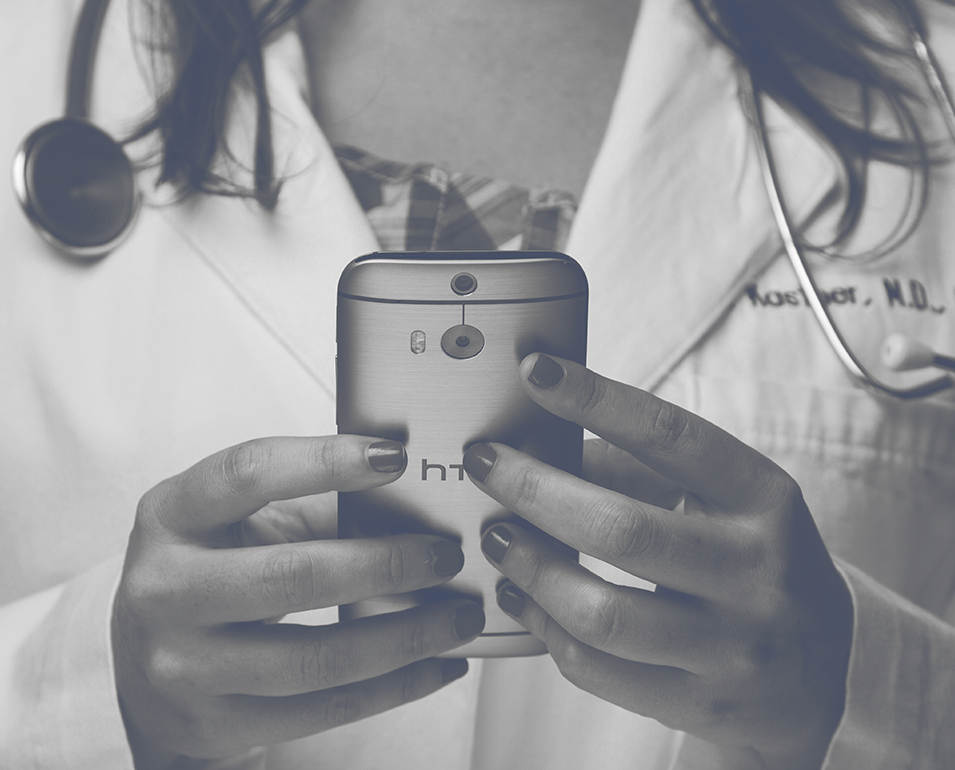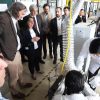By Solange Pino / solanpino@udec.cl/
Images: Unidad Telemedicina UdeC
It’s Monday morning, and a group of volunteer doctors from Concepción and other cities prepare to virtually consult with suspected coronavirus patients. These patients were initially detected through a digital platform created to evaluate, through simple questions, the possible presence of COVID-19 without the need to personally go to a clinic.
In almost one month, the physicians have conducted close to 600 free virtual interconsultations, and more than 1.3 million people have accessed the platform since mid-march through the website coronavirus.udec.cl. This website hosts the UdeC Telecovid-19 Project, which is led by the Telemedicine Unit of the Faculty of Medicine at the Universidad de Concepción.
The Telemedicine Unit has more than 15 years of experience in the use of information and communication technologies in health, including in academic, care, and clinical areas. The applications of telemedicine are diverse, ranging from patient consults, remote diagnoses, clinical evaluations, and health education to treatments and checkups with patients undergoing some procedure, to name a few. Furthermore, telemedicine has become an ally to health services by providing chances for medical consultations in specialties in which there are not enough doctors to reach the most remote areas of Chile, providing some level of resolution to unending wait lists.
b-HEALTH
Angélica Avendaño, Director of the Telemedicine Unit and project leader, defines the initiative as a “first filter,” a first consult through a very simple questionnaire, but one that contains an algorithm that alerts to patients meeting certain criteria that, according to current knowledge of the disease, would indicate a suspected case. At this time, suspected cases are diverted to a teleconsultation with a doctor, who may order that a COVID-19 exam be done in a nearby CESFAM clinic or, even, at the patient’s home, depending on the services offered by different health providers. “If the patient is not a suspected coronavirus case, the system provides guidance and educational material on the disease, as well as recommendations to fill out the questionnaire again if they start having any of the symptoms related to the disease,” adds Angélica Avendaño.

“What we are doing through this project is applying a model that the Telemedicine Unit, in our 15 years of history, has designed and validated. This model is b-Health, which combines in-person and virtual medical care. During a pandemic, the objective is to alleviate demands on urgent-care units, avoid infections, and prioritize urgent care services. [This will be especially important in] … the coming weeks, when seasonal respiratory viruses will, like every year, start to impact urgent care units and medical care efforts. In 2020, COVID-19 will also be present,” expresses Avendaño.
Thanks to collaborative work with the UdeC Faculty of Engineering, the UdeC Telecovid App is currently being developed and tested. This app will soon be available on Android and iOS as a way to optimize the existing platform, obtain georeferenced information from users, and analyze the presence and evolution of symptoms, all of which are vital points for taking more assertive decisions in this pandemic.
More information:
aavenda@udec.cl







